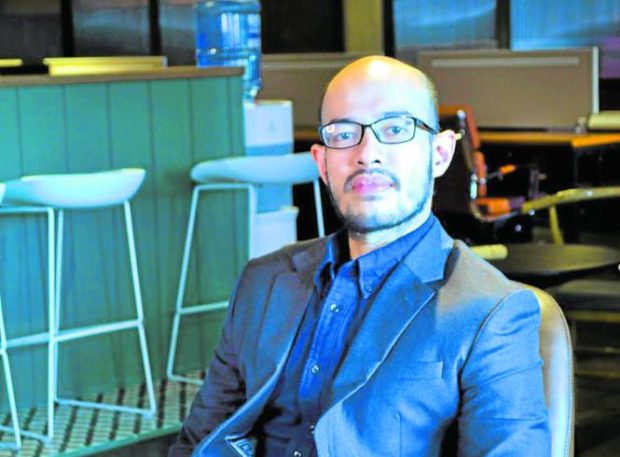High-growth SMEs can attract ‘smart’ capital

Edmund Solilapsi—CONTRIBUTED PHOTOS
Is your business’ growth visible and achievable, and is your organization prepared with the right foundations to service this growth? Do you have a strong accounting team that provides accurate and timely reports—and if none, are you willing to improve on that aspect? Finally, do you have the unceasing courageous spirit to put in the extra work as you grow your enterprise?
If you’re a small or medium enterprise (SME) that answered yes to all of these questions, then congratulations—you are ready to start your journey with an investor-partner, according to local mezzanine investor ARQCapital Partners.
“Ideally, SMEs that are at the inflection stage of their growth [can look into getting an investor-partner onboard],” says ARQCapital CEO Edmund Solilapsi. “More often than not, these include next-generation entrepreneurs expanding the existing business to the next level, or entrepreneurs who have tried and tested products and services where they’ve gained substantial traction that requires additional working capital or capital expenditure to serve a visible sales growth.”
Touting itself as the country’s pioneering mezzanine investor for SMEs, ARQ, founded by Solilapsi and Abigail Tan in 2014, has invested around P1 billion in 33 firms since 2016 through its ARQ SME Business Development Company (ARQ SME BDC) and through coinvestment partners.
A mezzanine investor provides a hybrid of debt and equity financing that gives the lender the right to convert the debt to an equity interest in the investee in case of default, generally after venture capital companies and other senior lenders had been paid.
Article continues after this advertisementSolilapsi says the SME fund has accelerated the growth of companies that proved to be “agile, innovative and have value-adding products and services” and sustained close to 3,000 jobs.
Article continues after this advertisement
Abigail Tan
“Uniquely challenging”
Over the next two years, ARQ is further pushing for “smart capital” investments in the private and alternative lending space by raising P1.5 billion to fund as many as 50 high-growth medium enterprises.
“There are a few ‘smart capital’ investors in the Philippines today and this space has yet to be institutionalized,” Solilapsi says. The Philippines’ financing market is dominated by banks and nonbank financial institutions—which are primarily passive capital providers and predominantly asset-backed, he adds.
At the same time, he says the private lending space is highly fragmented and generally yield-driven with no clear thematic approach necessary in providing smart capital and creating an enabling environment for these enterprises. As for venture capital firms, Solilapsi points out that they focus on early-stage startups and tech-driven companies while private equity investors and strategic investors focus on larger investments and more mature enterprises.
It’s an environment that ARQ describes as “uniquely challenging” for SMEs to find the right capital partner to fuel their growth.
Beyond financing, however, ARQ’s investment strategy “combines growth capital with customized business assistance to build stronger companies in the Philippines.” Their solutions include assistance in areas such as strategy and risk management, technical financial advice and access to ARQ’s network for either business relationships or further capital-raising.
At the start of the pandemic, for example, Solilapsi says ARQ shared with SMEs the importance of prioritizing strategies to “survive, sustain and switch” (SSS) their business during the lockdown. These strategies focused on the establishment of an agile organization, well-diversified revenue channels, and a culture of innovation. The investment company worked closely with heavily impacted investees to bounce ideas on how to achieve SSS during the first months of lockdown, as well as see them through during implementation—which even led to the restructuring of their investment to accommodate the change in cash flows.
The survivors
“Ultimately, the successful investees were the ones who showed great tenacity, patience, agility and a courageous spirit to not only survive but to thrive,” says Solilapsi.
Two of these investees are Royal House Group of Restaurants, the company behind Bulalo World, King Sisig, and Lechon Factory; and independent power producer and renewable electricity developer CleanTech.
Pivoting amid pandemic
For Royal House Group, ARQ was instrumental to their survival amid the COVID-19 pandemic, says Jose Rafael Nemeño, marketing manager.
“Royal House Group was aware of restaurant industry demand shifting toward online delivery and the opportunity to build cloud kitchens, especially during the height of the pandemic. However, given that the business was then reliant on in-mall sales, constricted cash flow prevented us from grabbing these delivery opportunities,” says Nemeño. “ARQ then designed a joint venture investment vehicle and raised capital that allowed Royal House Group to build seven new off-mall Cloud Kitchens in key areas of Metro Manila.
Because of ARQ’s agility, Nemeño says their investor-partner contributed directly to Royal House Group’s delivery volume growth of 200 percent during the pandemic. “Without ARQ, our brands wouldn’t have made inroads to the growing food delivery market,” he adds.
As for CleanTech, it’s that same agility which always leads them back to ARQ, says president and CEO Salvador Antonio Castro Jr. Recalling a time when ARQ helped CleanTech accomplish their financial requirements, and finished their due diligence during the Christmas holidays, Castro says speed is one of the investment firm’s best competitive advantages.
“The funny thing is we’ve actually had a lot of work over Christmas holidays over the past few years with ARQ, and they never failed to meet the deadline. So that’s definitely a plus for them; of course, as you very well know, for entrepreneurs, time is money,” Castro says.
“I think the second strategy that they have [that works well] is not only giving access to capital, but more importantly, allowing creative solutions to happen. They fully understand the different financing solutions, and that’s why, what we just do with them is we let them know where we are, we let them know what the requirements are—and we just give them space. And in one day, three days, five days or a week, they come back to us and they have an innovative solution already.”
ARQ’s drive to support SMEs, says Solilapsi, comes from their strong belief that SMEs are the “strong backbone of the Philippine economy.”
“We are hopeful that economic policies and regulatory framework will help sustain the growth of our SMEs, particularly in the capital markets, encouraging companies to go public or raise funds through issuing debt,” Solilapsi says.